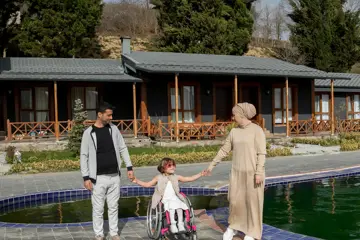As a foster carer who will be caring for a child or young person with a disability, it may be helpful to consider:
- What funding is in place?
- What are the considerations longer term and/or options when the young person turns 18?
- What support is provided by the 'local offer'? Is this funding to come from the placing local authority or the local authority where the young person will live with the foster carer, if this is different?
- Do EHC plans need to be changed? Will there be a transfer of professionals involved from health, etc.? Who will be responsible for actioning this and in what timescales?
- Have any relevant risk assessments been carried out or training been undertaken by the foster carer, regarding any medical procedures or medication?
- Is an Occupational Therapy assessment needed to assess the care needs of the child within the foster home, in order to ascertain if any equipment or adaptations will be needed to the property? Is funding available? Is the foster carer in agreement to changes to their home?
- Does the young person receive Disability Living Allowance (DLA) or Personal Independence Payments ( PIP), and how will this be transferred to any new carer? If not should an application for DLA or PIP payments be made, and who will support the carer with this?
- Is there an agreement of how DLA or PIP is to be used for this child or young person? Does the Fostering Service have a policy on DLA and PIP expenditure?
- What additional therapeutic support will be in place, if any?
- Does the carer require further advice from the Department of Work and Pensions, Citizens Advice Bureau, or their membership service?
For more advice on preparing to welcoming a child into your home, see our webpage here.


